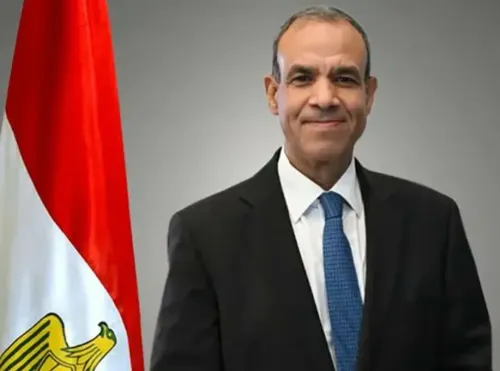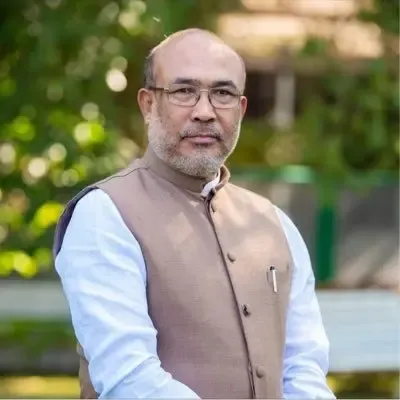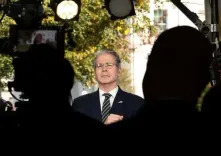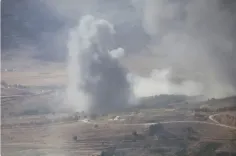What Led to Bangladesh's Political Turmoil?
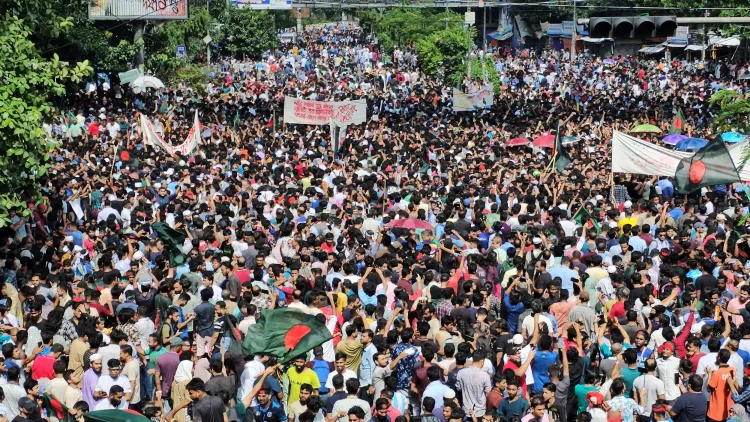
Synopsis
Key Takeaways
- 2024 July Uprising marked a significant political change in Bangladesh.
- Formation of the National Consensus Commission (NCC) to draft the July Charter.
- Contentious debates on electoral reforms and political representation.
- Legal status and implementation timing of the July Charter remain unresolved.
- Political polarization continues to threaten democratic stability.
New Delhi, Oct 26 (NationPress) A year ago, the political scene in Bangladesh underwent a significant shift as the country's Gen Zs ended the 15-year reign of Sheikh Hasina, who has since been labeled as the 'autocrat' or 'fascist'. The 2024 July Uprising was more than just a political transition; it reignited discussions about the future trajectory of Bangladesh's state-building.
This isn't the first time Bangladesh has experienced an uprising since its independence; the 1990 anti-Ershad movement is a memorable example that restored civilian governance.
However, the roots of autocracy run deep in Bangladesh’s political culture, shaped by its history of military dictatorship, which explains the ongoing democracy deficit similar to that of its neighbor Pakistan.
With democracy back in the conversation, fueled by calls for reforms to address past injustices, a National Consensus Commission (NCC) was formed in February to draft a new charter—the July Charter—that aims to restructure democratic institutions based on the consensus of all political factions.
A precursor to the July Charter, the July Declaration, was introduced by chief advisor Muhammad Yunus on August 5, commemorating the first anniversary of the uprising. The 28-point framework, presented in front of representatives from major parties, focused more on condemning the now-banned Awami League and its historical role from the 1971 Liberation War to Hasina’s governance, rather than embodying the true spirit of the uprising.
The declaration served as a compilation of criticisms aimed at the Awami League from its adversaries, adopting a one-dimensional view of political history.
Furthermore, it stipulated the formation of an interim government under Yunus’s leadership, despite lacking constitutional legitimacy, thereby legitimizing its governance. The July Declaration seeks constitutional recognition, likely within the Preamble of a new Constitution. While its legal basis remains ambiguous and debated, the push for recognition seems aimed at shielding anti-Hasina factions and legitimizing the interim government in the future.
Consensus discussions with the NCC and 33 political parties commenced in March. In the first round, which concluded in May, consensus was achieved on 62 out of 166 proposals, primarily focused on judicial reforms and revamping the Anti-Corruption Commission. The second round began in July, addressing 20 critical issues where consensus was not reached initially.
Despite discussions aimed at finalizing the charter, agreement was reached on only 13 out of 20 core reforms, with persistent disagreements on proposals for reserved parliamentary seats for women, electoral processes, the powers of an upper legislative house, state principles, the framework for a caretaker government, and the constitutional roles of key institutions such as the Public Service Commission and the Anti-Corruption Commission.
The final round of discussions began in August with 30 political parties, focusing on charter implementation. Political parties were given a draft charter indicating their commitment to enact reform proposals within two months of forming a new government following the next election. However, differences among parties persisted.
Initial disputes regarding the charter's legal and constitutional status arose, with Islamic parties and the National Citizen’s Party (NCP) pushing for immediate legal recognition, while the Bangladesh Nationalist Party (BNP) and smaller parties resisted without parliamentary dialogue. Although agreement was reached on implementing the July Charter through a referendum on October 5, disagreements about its timing emerged. Islamic parties and the NCP sought a pre-election referendum (scheduled for February), left parties wanted it before the charter's legal enactment, and the BNP preferred it post-election.
The NCC presented the final version of the July Charter to political parties, scheduling a signing date for October 17. This final draft comprises three sections: the first details the charter's background, the second lists 84 reform proposals, and the third outlines a seven-point implementation pledge, omitting the implementation methods.
As deadlocks remain, the NCC convened an emergency meeting with political parties led by the chief advisor. The July Charter was signed on October 17, with only a third of the reform proposals agreed upon. The NCP declined to sign, citing legal enforceability concerns, while four left parties refused due to the exclusion of fundamental constitutional principles.
Parties that signed, including the BNP and Jamaat-e-Islami, expressed formal dissent regarding two-thirds of the reform proposals where they held reservations.
From the inception of consensus talks to the signing, Bangladesh's political factions have become increasingly polarized. The only unifying agreement among parties is the need for reforms. No political party has shown a willingness to compromise—the essence of achieving consensus. Instead, these debates have merely highlighted the struggle of political parties to secure their future with impunity.
Political factions such as Jamaat-e-Islami and other Islamic parties, along with the NCP, have resorted to street protests to advocate for their demands regarding the July Charter, contradicting the dialogue-based framework that the consensus commission was established to uphold. They have even threatened to obstruct elections if their demand for legal recognition of the July Charter is not met, alongside other requests.
This situation illustrates that Bangladesh’s political culture remains burdened by its violent and undemocratic history. Furthermore, ongoing lawlessness and political clashes diminish faith in Bangladesh's achievement of its 'second liberation.'
The national election is set for February, yet concerns surrounding the July Charter cast doubt on whether the election will occur. Many have expressed fears that delaying the election could plunge Bangladesh into deeper political turmoil.
The urgency surrounding the signing of the July Charter leaves its fate uncertain, jeopardizing Bangladesh’s democratic transition. What was intended to be a consensus-based charter has turned into one lacking true consensus. Even if a national election takes place in February, it is evident that the country's democracy will face significant challenges to its survival.

